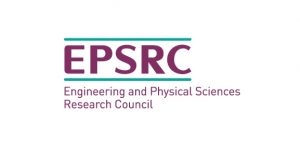Designing out-of-equilibrium many-body quantum systems was a research programme funded by the UK Engineering and Physical Sciences Research Council from February 2017 – August 2023, http://gow.epsrc.ac.uk/NGBOViewGrant.aspx?GrantRef=EP/P009565/1
The DesOEQ vision was to explore, understand, and ultimately design forms of out-of-equilibrium quantum dynamics that are relevant for future technologies, by using quantum simulators based on atomic gases in optical potentials.
Combining theory and experiment across the Universities of Strathclyde, Cambridge, and Oxford, we:
- Developed and benchmarked a new generation of quantum simulators for out-of-equilibrium dynamics giving access to:
- lattice systems with engineered topological properties and dissipation,
- lattice and spin models with tailored interactions and flexible lattice geometries, with single-site control and imaging, and
- gases in box-trap potentials with long-range interactions
- Used these simulators to explore novel fundamental aspects of out-of-equilibrium quantum dynamics, including steady-state properties of driven systems, time-dependent behaviour of systems near critical points, and dynamics in systems with topological properties or frustration
- Applied these systems to form a basis for enhanced technologies and to explore emergent non-equilibrium phenomena, including pairing in driven systems and quantum transport dynamics (WP5).
Background (original summary)
Huge amounts of data are routed through the internet and are being processed by our computers and mobile phones every second. Always being connected to the internet has transformed many aspects of our lives, from the way we do our shopping to how we meet friends. The demand for further improving our ability to process data is driven by ever more devices being connected to the internet and services being moved online to improve our quality of life.
The physical principles underlying our technology to store and process data are based on our understanding of out-of-equilibrium dynamics. Better control of this physics is crucial to further shrinking electronic devices and to address the major challenge of developing energy-efficient switching and communications links. Such further progress in information processing technologies is expected to heavily rely on quantum effects like superposition and entanglement in the near future.
In addition, as the fruits of the recently initiated National Quantum Technology Programme start to become available after 2020, it will be even more important to have the knowledge in place to be able to face the next generation of technological challenges, such as the scaling up of the newly developed quantum devices. How to exploit the advantages of these increasingly complex devices in the presence of noise and decoherence is intrinsically an issue of out-of-equilibrium many-body quantum physics. It is therefore crucial to put methods in place now that will underpin the design of out-of-equilibrium quantum systems.
Our vision is to explore, understand, and design out-of-equilibrium quantum dynamics that are relevant for such future communication and quantum technologies, using quantum simulators with ultracold atomic gases in optical potentials. Ultracold gases are a unique platform in that they offer controllability and versatility in the quantum regime that is currently unparalleled by any other quantum system. We will set up and investigate ultracold atom simulations to help planning and designing out-of-equilibrium many-body quantum dynamics similarly to how wind tunnels are utilized in aerodynamics.
This project will capitalise on these capabilities by exploring three broad aspects of out-of-equilibrium dynamics that are especially relevant for future technologies: (i) switching behaviour of driven quantum systems, which could also be used to design enhanced classical information processing devices; (ii) driven quantum systems as quantum-enhanced sensors; and (iii) engineering emergent phenomena in driven quantum systems. Our activity will bind together existing internationally leading researchers within the UK on a novel common project of high scientific interest and technological relevance. This provides a unique opportunity for the UK to adopt a world-leading position in the use of quantum simulators to explore out-of-equilibrium dynamics in quantum many-body systems.

